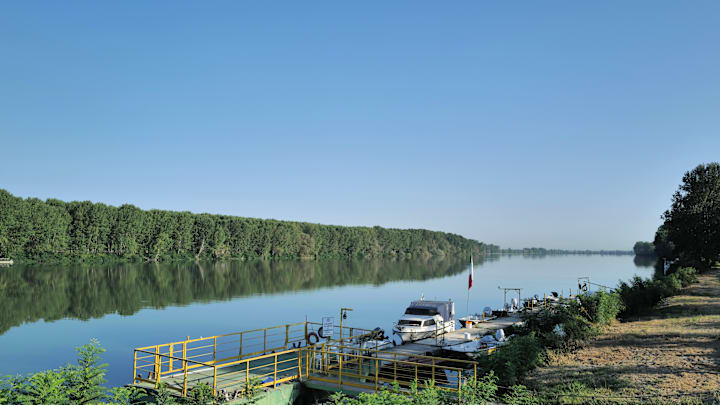The Role of Freshwater Ecosystems in Supporting Life

Freshwater ecosystems, which include rivers, lakes, wetlands, and streams, are vital to supporting life on Earth. These ecosystems provide essential services that sustain biodiversity, regulate climate, and support human societies. Understanding the role of freshwater ecosystems in supporting life is crucial for promoting their conservation and sustainable management.
Freshwater ecosystems are biodiversity hotspots, home to a wide range of plant and animal species. They provide habitat for numerous fish, amphibians, invertebrates, birds, and mammals, many of which are specially adapted to the unique conditions of freshwater environments. The diversity of species in freshwater ecosystems contributes to the overall health and resilience of these environments. Freshwater ecosystems also play a crucial role in maintaining genetic diversity, which enhances the adaptability of plant and animal populations to changing environmental conditions.
One of the primary ecological functions of freshwater ecosystems is their role in regulating the water cycle. Freshwater systems capture, store, and release water, influencing the availability and quality of water resources. Wetlands, for example, act as natural sponges, absorbing excess rainfall and reducing the risk of flooding. During dry periods, wetlands release stored water, maintaining base flows in rivers and streams and ensuring a consistent water supply. Rivers and lakes also play a crucial role in transporting nutrients and sediments, supporting the productivity of aquatic and terrestrial ecosystems.
Freshwater ecosystems provide numerous benefits to human societies, including water supply, food production, and recreation. Rivers, lakes, and aquifers are primary sources of drinking water for millions of people worldwide, supporting public health and well-being. Freshwater ecosystems also support agriculture by providing water for irrigation and fertile soils for crop production. Fisheries and aquaculture, which rely on healthy freshwater systems, supply protein and essential nutrients to billions of people, contributing to food security and economic development. Freshwater ecosystems offer recreational opportunities, such as fishing, boating, and birdwatching, enhancing the quality of life and generating economic revenue through tourism.
The role of freshwater ecosystems in climate regulation is increasingly recognized as a vital component of global environmental sustainability. Wetlands and other freshwater systems store significant amounts of carbon in their vegetation and soils, helping to mitigate the impacts of climate change by reducing greenhouse gas emissions. The preservation and restoration of freshwater ecosystems can enhance their carbon sequestration potential and contribute to global efforts to combat climate change. Healthy freshwater systems also play a crucial role in maintaining local and regional climates by regulating temperature, humidity, and precipitation patterns.
Despite their importance, freshwater ecosystems are under significant threat from human activities and environmental pressures. Pollution from agricultural runoff, industrial discharges, and sewage contaminates freshwater systems, harming aquatic life and reducing water quality. Habitat destruction, driven by urban development, deforestation, and infrastructure projects, leads to the loss and fragmentation of freshwater habitats. Over-extraction of water for agriculture, industry, and domestic use reduces the flow of rivers and the levels of lakes and aquifers, threatening the sustainability of water resources. Climate change, invasive species, and overfishing further exacerbate the pressures on freshwater ecosystems.
Efforts to conserve and sustainably manage freshwater ecosystems are essential for ensuring their continued provision of benefits and services. Protecting existing freshwater habitats through the establishment of protected areas, community conservation initiatives, and legal frameworks is a critical strategy. Restoration projects, such as replanting riparian vegetation, removing dams, and controlling invasive species, can help rehabilitate degraded freshwater areas and enhance their resilience. Sustainable water management practices, such as integrated water resources management (IWRM), can balance the use of water resources with conservation goals, ensuring the sustainability of freshwater systems.
Engaging local communities and stakeholders in freshwater conservation is vital for the success of these efforts. Recognizing the rights, knowledge, and needs of indigenous and local communities ensures that conservation initiatives are socially inclusive and culturally appropriate. Community-based management approaches can empower local people to take an active role in protecting and sustainably using freshwater resources. Education and awareness campaigns can foster a greater appreciation of freshwater ecosystems and encourage sustainable behaviors.
International cooperation and policies play a crucial role in addressing the global challenges facing freshwater ecosystems. Initiatives such as the United Nations' Sustainable Development Goals, the Convention on Biological Diversity, and the Ramsar Convention on Wetlands provide a framework for coordinated action to protect and restore freshwater systems. Financial incentives, such as payment for ecosystem services and water stewardship programs, can support freshwater conservation and restoration efforts.
In conclusion, freshwater ecosystems are vital to supporting life on Earth, providing essential services that sustain biodiversity, regulate climate, and support human societies. Their role in water regulation, carbon sequestration, and habitat provision underscores their ecological and economic importance. However, freshwater ecosystems face significant threats from human activities and environmental pressures. Conserving and sustainably managing freshwater systems is essential for ensuring their continued provision of ecosystem services and benefits. By recognizing the value of freshwater ecosystems and taking concerted action to protect them, we can preserve these vital ecosystems for the benefit of present and future generations.